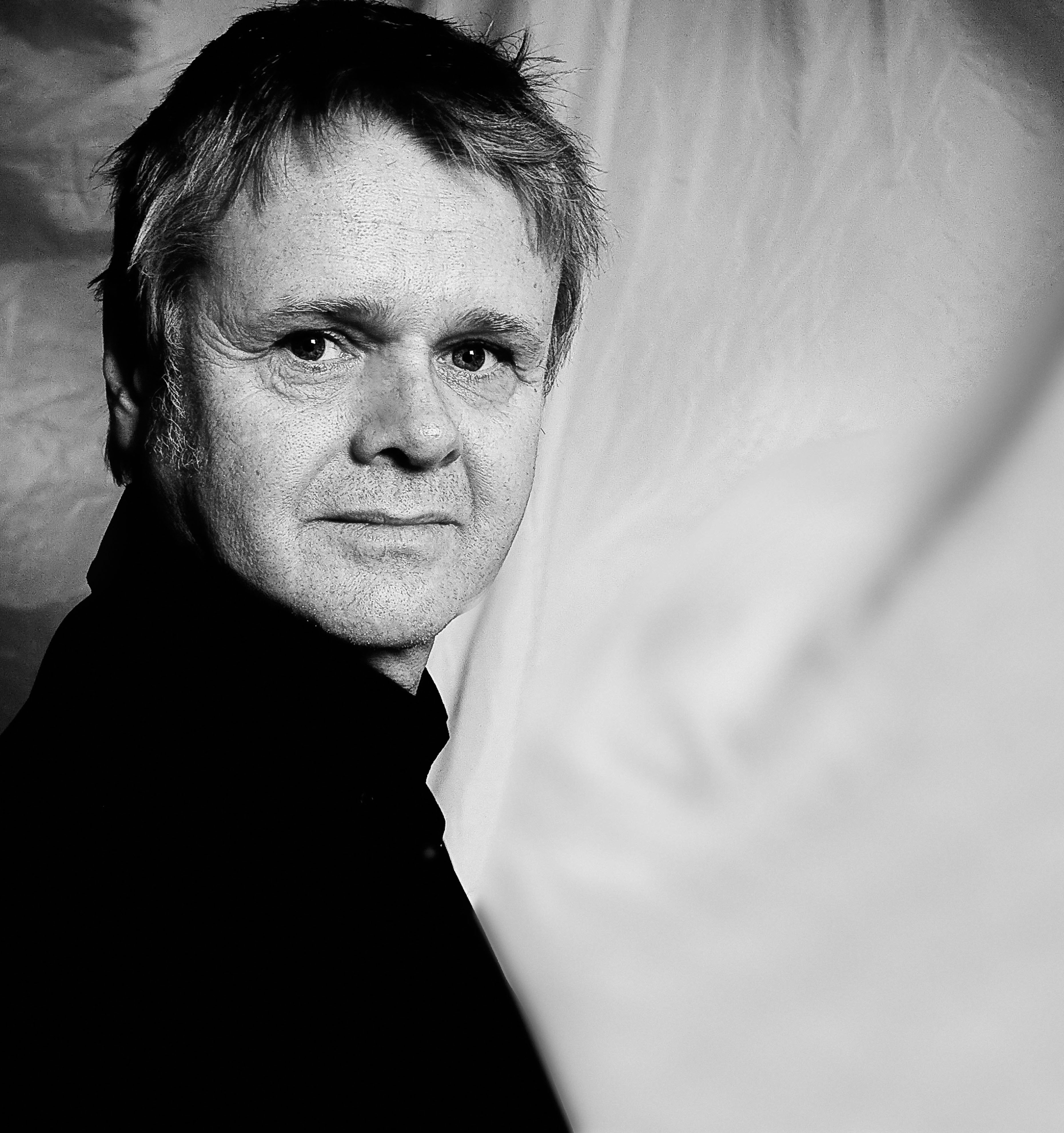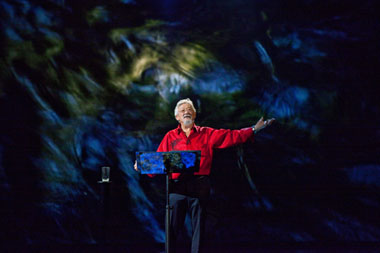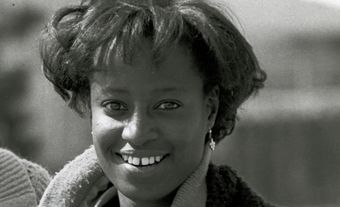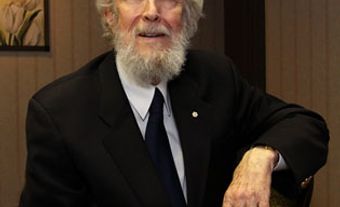Sturla Gunnarsson, director, producer, writer (born 30 August 1951 in Reykjavik, Iceland). One of Canada's most versatile and honoured filmmakers, Sturla Gunnarsson has established a distinguished career as a director of acclaimed documentaries, feature films and television series. He has been nominated for an Oscar and won Emmy, Gemini and Genie Awards, and excels at telling personal stories of ordinary people caught up in the whirlwind of historic events. He is perhaps best known for the documentaries After the Axe (1981), Final Offer (1985) and Force of Nature: The David Suzuki Movie (2010), as well as the feature films Diplomatic Immunity (1991), Such a Long Journey (1998) and Beowulf & Grendel (2005).
Education
Gunnarsson’s family moved to Canada when he was six and he grew up in Vancouver, where he graduated with a BA in English literature from the University of British Columbia (UBC) in 1974. Before turning to filmmaking as a career, he travelled extensively in Europe, working as a shepherd in Crete, a heavy construction worker in the Shetland Islands and a fisherman in Iceland.
Returning to Canada, Gunnarsson received a post-graduate degree in film from UBC in 1977. His graduate film, A Day Much Like the Others, won the Norman McLaren Grand Prize at the 1977 Canadian Student Film Festival in Montréal, as well as the top prize at the Rencontres Henri Langlois Festival in Paris. It was also screened at the Museum of Modern Art in New York.
Documentaries
Gunnarsson subsequently landed freelance work at the National Film Board (NFB) as a director and producer. His first docudrama was After the Axe (1981), about a middle-aged executive who is downsized. The film, which cast non-professional actors as themselves, is a damning account of a corporate culture that stresses success over compassion. Praised at the time for its fresh, unvarnished approach, it won the Golden Sheaf Award at the Yorkton Film Festival and received an Oscar nomination for feature documentary.
Gunnarsson’s next film, Final Offer: Bob White and the Canadian Auto Workers Fight for Independence (1985), was a more conventional fly-on-the-wall documentary. Directed and produced with Robert Collison, the film captures the dramatic 1984 contract negotiations between United Auto Workers (UAW) and General Motors, which resulted in UAW leader Bob White pulling his members out of the international union. A remarkable first-hand account of an infamously tense labour negotiation, the film won a Genie Award for feature documentary and the Grand Prize at the Banff Television Festival.
Gunnarsson followed that success with Where Is Here? (1987), a behind-the-scenes documentary about the making of the 100th-anniversary issue of Saturday Night magazine. After a decade-long hiatus from documentaries, he then made Gerrie & Louise (1997), a documentary love story about the relationship between a tribunal investigator and a hit-squad commander in post-Apartheid South Africa. It won an International Emmy Award in 1998, and Gemini Awards for Best Documentary Program and Best Writing in a Documentary Program.
After another foray into fiction, he returned to his documentary roots in 2008 with Air India 182, about the 1985 terrorist bombing and its aftermath. He then directed and co-produced the award-winning Force of Nature: The David Suzuki Movie (2010), a literary biography of Canada's leading environmentalist, David Suzuki. That film won the People's Choice Award for Best Documentary at the 2010 Toronto International Film Festival.
Feature Films
Gunnarsson’s first feature film, Diplomatic Immunity (1991), received four Genie nominations and won the Prix de la Ville de Cannes at the Cannes Film Festival. It tells the story of a Canadian diplomat (played by Wendel Meldrum) caught up in El Salvador's civil war, and was distinguished by Gunnarsson and screenwriter Steve Lucas’s ability to weave together the diplomat's personal narrative with the history of El Salvador. The film established Gunnarsson as a director who tells personal stories of ordinary people caught in the whirlwind of historic events.
Gunnarsson achieved a dramatic breakthrough in 1998 with Such a Long Journey, an adaptation of Rohinton Mistry's popular novel, which was shot in Mumbai, India. Starring Indian actors Roshan Seth, Om Puri and Ranjit Chowdhry, it was nominated for 12 Genie Awards, including Best Motion Picture and Best Direction, and won three. Rare Birds (2001), Gunnarsson's charming, offbeat comic romance based on the novel by Edward Riche, starred William Hurt, Molly Parker and Andy Jones. It was the big winner at the first annual Directors Guild of Canada Awards, taking four trophies, including Outstanding Achievement in Direction. Gunnarsson was also nominated for Best Direction at the Genie Awards for Rare Birds.
He returned to his native Iceland to film Beowulf & Grendel (2005), an ambitious $15-million adaptation of Beowulf, the 8th-century Old English heroic epic poem based on Norse myths and legends. The international co-production features Gerard Butler, Stellan Skarsgård and Sarah Polley.
Television Work
Gunnarsson's finesse as a skilful director of dramas is evidenced by his work on such television series as The Beachcombers, Street Legal, North of 60, Da Vinci's Inquest, Intelligence, Degrassi: The Next Generation, Defying Gravity, Rookie Blue, Motive and 19-2.
His acclaimed TV movies include: the CBC drama The Diary of Evelyn Lau (1993), which launched the career of Sandra Oh; Diana Kilmury: Teamster (1996); Ricky Nelson: Original Teen Idol (1999); the true-crime murder-for-hire story Scorn (2001); 100 Days in the Jungle (2002), based on the events of seven Edmontonians kidnapped in Ecuador; and Above and Beyond (2006), about the Atlantic Ferry Operation during the Second World War.
Organizational Involvement
Gunnarsson is a past president of the Directors Guild of Canada, and a vocal advocate of the English-Canadian film and television industry.
Awards
Directors Guild of Canada Awards
DGC Team Award, Outstanding Achievement in a Feature Film (Rare Birds) (2001)
DGC Craft Award, Outstanding Achievement in Direction (Rare Birds) (2001)
DGC Craft Award, Outstanding Achievement in Direction – Television Series (Da Vinci’s Inquest) (2004)
DGC Craft Award, Outstanding Team Achievement in a Television Series – Drama (Da Vinci’s Inquest) (2004)
DGC Craft Award, Direction – Television Movie/Mini-Series (Above and Beyond) (2007)
DGC Team Award, Allan King Award for Excellence in Documentary (Air India 182) (2009)
DGC Team Award, Allan King Award for Excellence in Documentary (Force of Nature) (2010)
Others
Golden Sheaf Award, Best Director (After the Axe), Yorkton Film Festival (1981)
Best Feature Length Documentary (Final Offer), Genie Awards (1986)
Grand Prize (Final Offer), Banff Television Festival (1986)
Donald Brittain Award for Best Social/Political Documentary Program (Gerrie & Louise), Gemini Awards (1998)
Best Feature Documentary, International Emmy Awards (1998)
Most Popular Canadian Film (Such a Long Journey), Vancouver International Film Festival (1998)
Audience Award (Rare Birds), Atlantic Film Festival (2001)
Best Direction in a Dramatic Series (Da Vinci’s Inquest), Gemini Awards (2004)
People’s Choice Award – Documentary (Force of Nature), Toronto International Film Festival (2010)
Most Popular Environmental Film (Force of Nature), Vancouver International Film Festival (2010)

 Share on Facebook
Share on Facebook Share on X
Share on X Share by Email
Share by Email Share on Google Classroom
Share on Google Classroom





